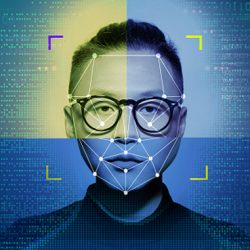Algorithms reflect the biases of the society in which they exist and the programmers who create them. There has been a social and political reaction against their use. How do algorithms govern social and political interactions? What is the most proper use of algorithms? And what are the biases that persist in their use? [ dur: 58mins. ]
- Tina Eliassi-Rad is a Professor of Computer Science at Northeastern University. She is also a core faculty member at Northeastern’s Network Science Institute and the Institute for Experiential AI. She is the author of Measuring Algorithmically Infused Societies and What Science Can Do for Democracy: A Complexity Science Approach.
- Damien Patrick Williams is an assistant professor in Philosophy and Data Science at the University of North Carolina at Charlotte. He is the author of Why AI Research Needs Disabled and Marginalized Perspectives, Fitting the description: historical and sociotechnical elements of facial recognition and anti-black surveillance, and Constructing Situated and Social Knowledge: Ethical, Sociological, and Phenomenological Factors in Technological Design. Damien is member of the Project Advisory Committee for the Center for Democracy and Technology’s Project on Disability Rights and Algorithmic Fairness, Bias, and Discrimination, and the Disability Inclusion Fund’s Tech & Disability Stream Advisory Committee.
- Henning Schulzrinne is Professor in the Department of Computer Science at Colombia University. He is the co-author of Mobility Protocols and Handover Optimization: Design, Evaluation and Application, Bridging communications and the physical world and Future internets escape the simulator. He was nominated as Internet Hall of Fame Innovator in 2013. He was Chief Technology Officer for the FCC under the Obama Administration.
This program is produced by Ankine Aghassian, Doug Becker, Melissa Chiprin and Sudd Dongre.
Podcast: Play in new window | Download (Duration: 58:01 — 53.1MB) | Embed
Subscribe: Apple Podcasts | Spotify | RSS
